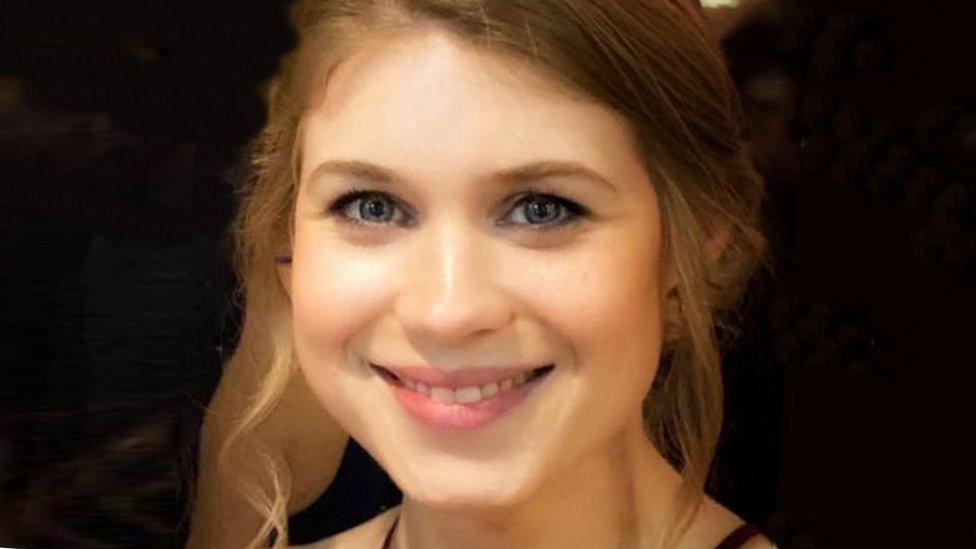Sarah Everard: Abuse survivors helped with funds raised after vigil
- Published
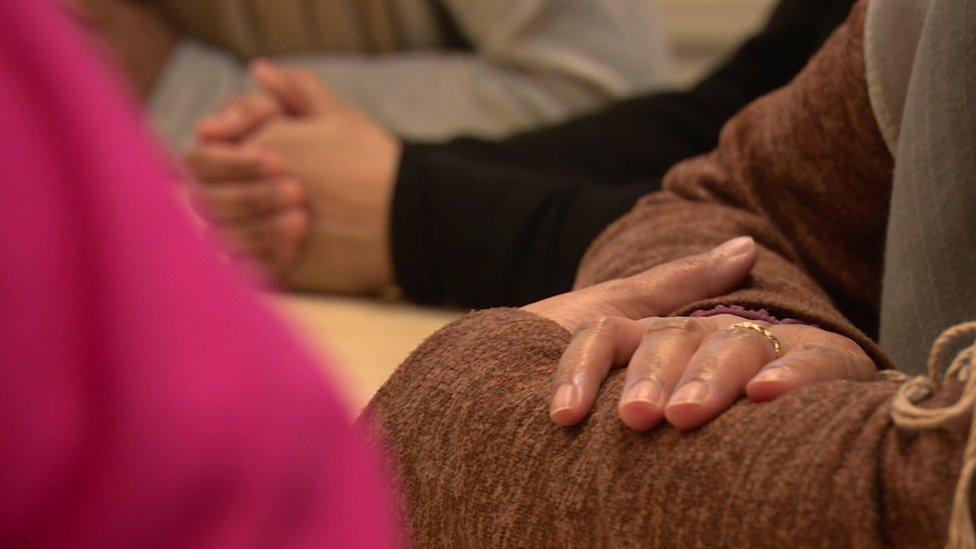
More than £552,000 has been raised by Reclaim These Streets to support to women's charities
"He took my passport, my credit card, my jewellery, and my clothes. I had nothing."
This is Amy's experience of being trafficked to London from North Africa.
Now, thanks to funds raised after the murder of Sarah Everard, she and others across the UK have been able to access safe accommodation and rebuild their lives.
BBC London has been to meet some of the women and charities the money is helping.
Warning: Some details in this story may be distressing
Amy, whose name has been changed to protect her identity, said that after being brought to the UK she was locked in a house in London and not allowed to leave.
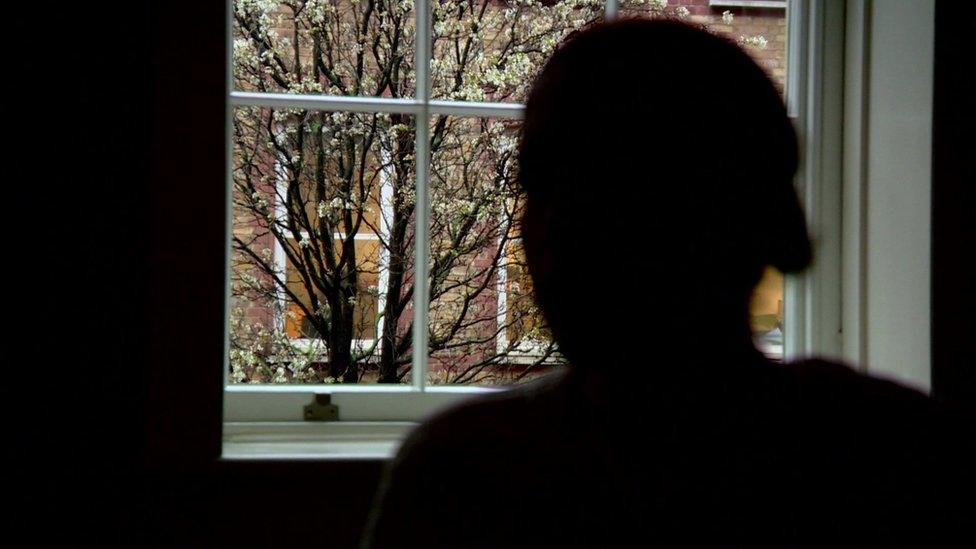
Amy is one of many women helped through funds raised after a planned vigil for Sarah Everard
She was forced into domestic slavery and, if she didn't do exactly what her captor and those around him asked, she was punished.
Realising no-one knew where she was, Amy feared her days were numbered.
"I was so scared they were going to kill me and put me in the garden and no-one would know," she told BBC London.
With only the clothes on her back, she saw an opportunity to escape - and ran.
Fundraising an alternative to vigil
Amy stayed on the streets with no money, food or spare clothes until she was referred to an outreach worker from the charity Ella's, which offers safe homes for trafficked women.
The organisation was able to offer Amy a place to stay thanks to a fundraising initiative by women's group Reclaim These Streets to help organisations increase their capacity.
Reclaim These Streets had to cancel a planned vigil for Sarah Everard in Clapham, south London, during the lockdown of March 2021 when it was informed by the Metropolitan Police those organising it could face a £10,000 fine.
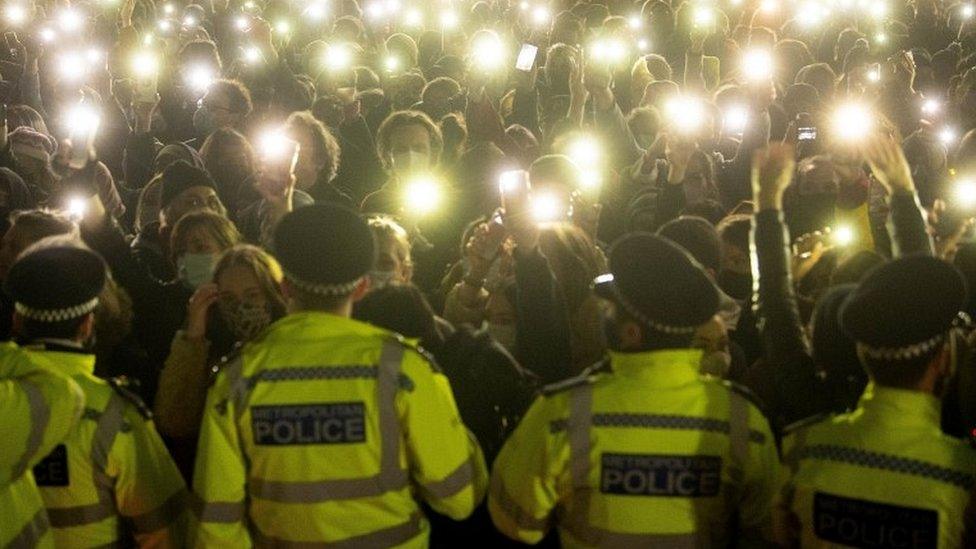
An unofficial vigil took place at Clapham Common after the original event was cancelled by Reclaim These Streets
Instead, it set up a fundraising page to raise money to support women's charities working to end violence against women and girls and has raised more than £550,000.
Since then, charities across the UK have received grants - including London-based organisation Maa Shanti, which helps protect South Asian mothers facing domestic violence.
The charity works with women who move to the UK to continue a relationship with a partner, who later becomes abusive.
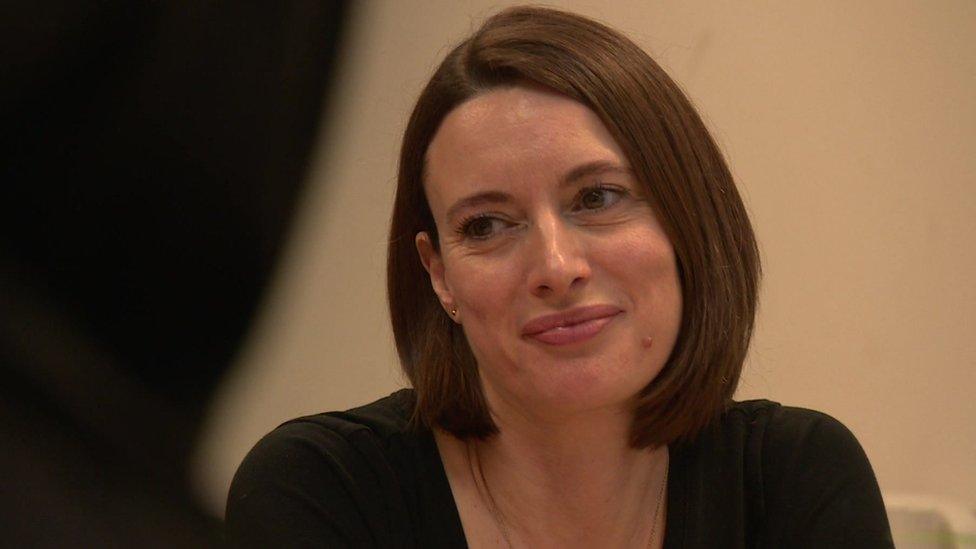
Maa Shanti's director Catherine Skinner says many of its clients have felt trapped and cut off
"Every community has different needs when it comes to violence against women and girls," said Maa Shanti's director Catherine Skinner.
She said many of its clients felt trapped and cut off from the world, in some cases for decades.
"You may not speak English as your first language. You may have felt so isolated by the perpetrator and your in-laws that you feel you have no idea how to navigate the system," she added.
'I didn't know what London looked like'
One survivor who lived in the capital for 10 years before building the courage to flee said: "They told me it's horrible outside, it's not a nice place for you.
"I was never allowed to leave the house, even for 10 minutes. So I didn't even know what London looked like," she said.
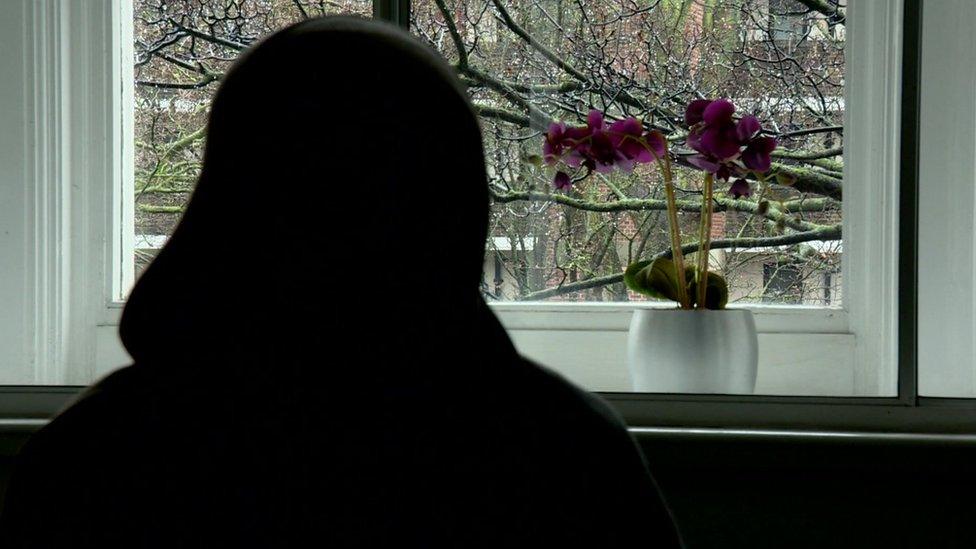
A survivor helped by Maa Shanti said: "You forget when you come here. You feel normal"
The charity has since supported her to start a new life and meet other survivors from similar backgrounds.
They meet weekly to take part in activities that build their skills and confidence, from using the bus and learning how to recognise financial abuse to cooking, crochet and coffee mornings.
"They really boost your confidence. You forget when you come here. You feel normal," she said.
Charities 'running on fumes'
Rosa, a UK fund for women and girls, was tasked with finding the frontline organisations that needed funding to build their capacity.
Its CEO Rebecca Gill said those tackling violence against women and girls were often "invisible, silenced, underfunded and running on fumes" and, while the money was appreciated, more permanent funding needed to be made available to support victims.
"It takes the murder of a woman time and time again for there to be fundraising, and that is not a sustainable model," she said.
"We cannot keep raising money when women die."
A spokesperson for Reclaim These Streets said the organisation had met some of the grant recipients last summer, adding it was "a source of great relief to us all" that the funding had helped to "future-proof their organisations and see those charities thrive".
"It's incredible the work they do, especially given that these women are the most-affected by cuts in social services," they continued.
'Esteemed women'
"It was an honour to be part of the process with Rosa and the esteemed women we worked with to distribute the money the public entrusted us with at Reclaim These Streets."
A government spokesperson said it had made "significant" progress over the past 14 years, but agreed there was "always more to do".
They said it had "invested in delivering and improving frontline services and providing safe spaces for survivors, including over £140m for supporting victims through the Tackling Domestic Abuse Plan between 2022 and 2025".
If you have been affected by any of the issues raised in this story you can visit BBC Action Line.

Listen to the best of BBC Radio London on Sounds and follow BBC London on Facebook, external, X, external and Instagram, external. Send your story ideas to hello.bbclondon@bbc.co.uk
- Published14 March 2024

- Published14 September 2023
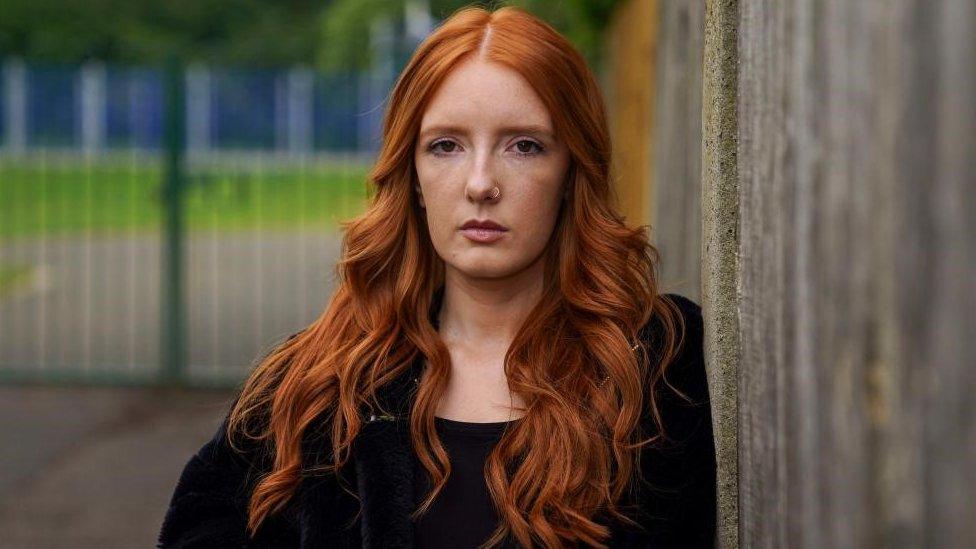
- Published30 September 2021
